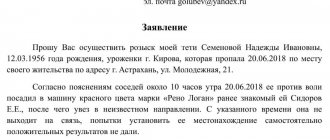Criminal Code of the Russian Federation in the latest edition:
Article 127.2 of the Criminal Code of the Russian Federation. Use of slave labor
1. The use of the labor of a person in respect of whom the powers inherent in the right of ownership are exercised, if the person, for reasons beyond his control, cannot refuse to perform work (services), -
shall be punishable by forced labor for a term of up to five years or imprisonment for the same term.
2. The same act committed:
a) in relation to two or more persons;
b) in relation to a minor;
c) by a person using his official position;
d) using blackmail, violence or the threat of its use;
e) with the seizure, concealment or destruction of documents identifying the victim -
shall be punishable by forced labor for a term of up to five years or imprisonment for a term of three to ten years with or without deprivation of the right to hold certain positions or engage in certain activities for a term of up to fifteen years.
3. Acts provided for in parts one or two of this article, which through negligence resulted in death, infliction of serious harm to the health of the victim or other grave consequences, or committed by an organized group, -
shall be punishable by imprisonment for a term of eight to fifteen years, with or without restriction of freedom for a term of up to one year.
Return to the table of contents of the document: Criminal Code of the Russian Federation in the latest edition
What is slavery
Crimes against human freedom are punishable at the level of international law. Turning a person into a slave is a serious crime, which is punished more severely than theft or kidnapping.
Today, the main document prohibiting slavery is the Universal Declaration of Human Rights, which was published in 1948. This paper enshrines the concept of slave labor. Thus, a slave is considered to be a person who does not have the right to refuse work.
Slavery is a special form of socio-psychological relations that arise between subjects. In this case, one person begins to completely control the actions of another, exploiting his labor.
Article 37 of the Constitution of the Russian Federation states that no one can force a citizen to perform labor. In addition, any work activity must be fairly paid. Similar rules are present in the laws of other countries. To date, slave labor has been identified in 137 countries. There are more than 5 million minors among the victims of illegal exploitation.
Judicial practice: sentences and punishment under Art. 127.2 of the Criminal Code of the Russian Federation
- Decision of the Supreme Court: Determination N 203-APU17-21... THE SUPREME COURT OF THE RUSSIAN FEDERATION Case No. 203-APU17-21 APPEAL DECISION Moscow August 31, 2022 Judicial Collegium for Military Personnel of the Supreme...
- Decision of the Supreme Court: Resolution No. 310P13 dated... DECISION OF THE PRESIDIUM OF THE SUPREME COURT OF THE RUSSIAN FEDERATION Case No. 310-P13 Moscow January 23, 2014 Presidium of the Supreme Court of the Russian Federation...
- Resolution of the Plenum of the Supreme Court of the Russian Federation dated... PLENARY OF THE SUPREME COURT OF THE RUSSIAN FEDERATION DECISION dated December 27, 2002 N 29 ON JUDICIAL PRACTICE IN CASES OF THEFT,...
- Judicial Collegium for Criminal Cases, appeal:... THE SUPREME COURT OF THE RUSSIAN FEDERATION Case No. 72-APU 17-21 APPEAL DECISION Moscow October 04, 2022 Judicial Collegium for Criminal Cases...
- Ruling of the ECtHR dated 02/14/2017 EUROPEAN COURT OF HUMAN RIGHTS THIRD SECTION CASE “MASLOVA VS. RUSSIAN FEDERATION” (Complaint No. 15980/12) JUDGMENT…
- Resolution of the Presidium of the Supreme Court of the Russian Federation dated... PRESIDIUM OF THE SUPREME COURT OF THE RUSSIAN FEDERATION DECISION dated December 5, 2018 N 126-P18 ON RESUMING PROCEEDINGS IN THE CASE DUE TO NEW...
- Resolution of the Plenum of the Supreme Court of the Russian Federation dated... PLENARY OF THE SUPREME COURT OF THE RUSSIAN FEDERATION DECISION of November 15, 2016 N 48 ON THE PRACTICE OF APPLICATION BY COURTS OF LEGISLATION GOVERNING FEATURES...
- Resolution of the Plenum of the Supreme Court of the Russian Federation dated... PLENAUM OF THE SUPREME COURT OF THE RUSSIAN FEDERATION DECISION dated June 25, 2022 N 18 ON JUDICIAL PRACTICE IN CASES OF CRIMES,...
- Decision of the Supreme Court: Determination No. 38-АПУ17-2 dated... THE SUPREME COURT OF THE RUSSIAN FEDERATION No. 38-АПУ17-2 APPEAL DECISION Moscow March 1, 2022 Judicial Collegium for Criminal Cases of the Supreme Court...
- Ruling of the Constitutional Court of the Russian Federation dated March 13, 2018 N 578-O THE CONSTITUTIONAL COURT OF THE RUSSIAN FEDERATION RULING dated March 13, 2018 N 578-O ON THE REFUSAL TO ACCEPT A CITIZEN’S COMPLAINT FOR CONSIDERATION...
Slave labor concept
We are talking about forced unpaid work. Sometimes the victim receives money, but the amounts are disproportionately small.
Forced labor is prohibited in Russia at the legislative level. Article 37 of the Constitution of the Russian Federation states that every citizen has the right to choose a job voluntarily, receive decent remuneration, and work in safe conditions that meet hygiene requirements.
The concepts of “slave” and “forced” labor are largely identical. However, slavery is considered the most radical and severe form of coercion. A person is deprived of personal freedom, subjected to psychological and physical violence, and punishment for poor performance of work. Relationships of the “master-slave” type are established between subjects.
There are criminal penalties for using slave labor. The choice of preventive measure occurs under Article 127.2 of the Criminal Code of the Russian Federation. Often, forced work for free intersects with human trafficking. In this case, the attacker may receive additional punishment under Article 127.1 of the Criminal Code of the Russian Federation.
Article for slavery
The Criminal Code of the Russian Federation classifies slavery as a criminal offense. Article 127.2 sets out the punishment that can be imposed for the use of slave labor.
The article defines slavery in much the same way as international agreements, that is, liability is implied for a person who committed actions aimed at unlawful deprivation of liberty and misuse of the labor of another person, and these actions were of a proprietary nature and led to the fact that the person could not voluntarily refuse to perform any work.
The use of involuntary labor involves the disposal, use and possession of the results of a citizen’s labor activity, which is actually owned by a criminal person.
As for the impossibility of the victim’s refusal to perform labor activities, here he must face reasons that do not depend on him and make performing slave labor the only possible option.
For example, this may be due to a direct threat to the life and health of a forced person from the criminal, as well as a threat to the well-being of his family members, close people, etc. A lawbreaker may also threaten to damage property, use labor as atonement for the victim’s guilt, as well as for the purpose of using his creative and mental abilities for personal purposes.
Moreover, the victim may find himself in conditions of slave labor on his own initiative. Thus, mentally ill people, children, religious fanatics, and, in general, people who are unable to resist a criminal are often involved in slave labor.
Also, this article in the second and third parts defines qualified and especially qualified offenses, respectively. Thus, point 1 implies crimes of moderate gravity, 2 – serious, and 3 – especially serious crimes.
Corpus delicti
Slavery must be distinguished from illegal imprisonment. The latter is qualified under Article 127 of the Criminal Code of the Russian Federation. The key difference between the two crimes is the attitude of the offender towards the victim. In the case of slavery, one person does not simply suppress the will of another, but treats him as his property. This characteristic makes slave labor one of the most dangerous manifestations of social relations.
To bring a person to justice under Article 127.2 of the Criminal Code of the Russian Federation, his actions must contain elements of a crime. It is realized in a combination of four characteristics:
- Subject of the crime. This is a citizen who has reached the age of 16 and illegally exploits the labor of another person. Only a mentally sane citizen can be brought to criminal liability.
- Object of crime. In this case, the main object is an encroachment on human freedom, his right to free work and decent pay. As optional objects, one can consider an attack on life, health, physical and mental development (in the case of minors), dignity and honor.
- The subjective side of the crime. Expressed in relation to the subject's actions. Compulsion to slave labor always presupposes direct intent. The criminal must be aware of his actions, using another person for personal gain.
- Objective side. These are external manifestations of criminal acts that are accessible to analysis and study. We are talking about methods of forcing people to work for free, types of activities, working conditions, etc. The key factor is the inability of a citizen to refuse to provide services or perform work.
The crime is considered committed at the moment of actual coercion of a forced laborer to work. The qualification of the crime is not affected by the number of hours worked.
Have a question for a lawyer? Ask now, call and get a free consultation from leading lawyers in your city. We will answer your questions quickly and try to help with your specific case.
Telephone in Moscow and the Moscow region: +7
Phone in St. Petersburg and Leningrad region: +7
Free hotline throughout Russia: 8 (800) 301-39-20
Commentary on Article 127.2 of the Criminal Code of the Russian Federation
This criminal law prohibition is based on the norms of international law <1>. The concept of slavery is defined in Art. 1 of the Slavery Convention of 25 September 1926, art. Art. 1, 7 of the Additional Convention on the Abolition of Slavery, the Slave Trade and Institutions and Customs Associated with Slavery of September 7, 1956 (see commentary to Article 127.1 of the Criminal Code of the Russian Federation).
——————————— <1> “No one should be kept in slavery; slavery and the slave trade are prohibited in all forms” (Article 8 of the International Covenant on Civil and Political Rights of December 16, 1966); “No one shall be held in slavery or servitude” (Article 4 of the European Convention for the Protection of Human Rights and Fundamental Freedoms of November 4, 1950).
All slave labor is forced. However, the concept of forced labor is broader, since it includes labor that is not slave labor. Forced labor is work or service required from a person under threat of any penalty, for which that person has not offered voluntary services (Article 2 of the International Labor Organization Convention No. 29 on Forced Labor of 28 June 1930). Article 4 of the Labor Code of the Russian Federation <1> establishes that forced labor is the performance of work under the threat of any punishment (violent influence), including: in order to maintain labor discipline; as a measure of responsibility for participating in a strike; as a means of mobilizing and utilizing labor for economic development needs; as a penalty for holding or expressing political views or ideological beliefs contrary to the established political, social or economic system; as a measure of discrimination based on race, social, national or religious affiliation. Forced labor includes: violation of established deadlines for payment of wages or payment not in full; the employer's requirement that the employee perform labor duties if the employee is not provided with collective or individual protective equipment or the work threatens the life or health of the employee.
——————————— <1> NW RF. 2002. N 1 (part 1). Art. 3.
The term "forced or compulsory labor" does not include:
a) any work or service required by the laws of compulsory military service and applied to work of a purely military nature;
b) all work or service forming part of the normal civic duties of citizens of a fully self-governing country;
c) any work or service required of any person as a result of a sentence passed by a judicial authority, provided that such work or service will be carried out under the supervision and control of public authorities and that the said person will not be assigned or placed at the disposal of private persons, companies or societies;
d) any work or service required in emergency circumstances, i.e. in cases of war or disaster or threat of disaster, such as: fires, floods, famine, earthquakes, severe epidemics or epizootics, invasions of harmful animals, insects or plant parasites, and in general circumstances that endanger or may endanger life or normal life conditions of all or part of the population;
e) small community work, i.e. work performed for the direct benefit of the collective by members of this collective and which therefore can be considered ordinary civil duties of members of the collective, provided that the population itself or its direct representatives have the right to express their opinion regarding the appropriateness of these works (Article 2 of Convention No. 29 of the International Labor Organization on forced labor dated June 28, 1930).
The use of forced labor that is not slave labor, as well as forced labor that is not slave labor, excludes the qualification of the act under Art. 127.2 of the Criminal Code of the Russian Federation; but if there are grounds for this, it may entail criminal liability under other articles of the law (for example, Articles 136, 143, 145.1, 286, etc. of the Criminal Code of the Russian Federation).
The characteristics of an object of slave labor are identical to the characteristics of an object of kidnapping (see commentary to Article 126 of the Criminal Code of the Russian Federation). An additional object of crime is also the relationship that develops regarding a person’s exercise of his right to free work in fair and favorable conditions <1>.
——————————— <1> “States recognize the right to work, which includes the right of every person to the opportunity to gain his living by work which he freely chooses or accepts”; “States recognize the right of everyone to just and favorable conditions of work, including, in particular: a) remuneration that provides, as a minimum, to all workers: fair wages and equal remuneration for work of equal value; a satisfactory existence for them and their families; b) working conditions that meet safety and hygiene requirements; c) equal opportunity for advancement in work for everyone; d) rest, leisure and reasonable limitation of working hours” (Articles 6, 7 of the International Covenant on Economic, Social and Cultural Rights of December 16, 1966).
The victim of a crime is a person who is in slavery, i.e. a person in respect of whom all or some of the attributes inherent in the right of ownership are exercised, and who cannot refuse to perform certain works or services that are offered (imposed) to him by the perpetrators.
Slavery grossly violates generally accepted standards of human legal status and therefore has no legal basis. As a human condition, it can arise as a result of kidnapping, purchase and sale or other transactions, debt dependence, etc. The consent of the victim to exploitation does not change the criminal legal assessment of the use of slave labor, and therefore the “self-selling” of a person into slavery is also recognized as one of the grounds for the emergence of this condition.
The reasons why a person in slavery cannot refuse to perform work or services may vary. The history of slavery knows two main types of forced labor: economic (for example, when working off a debt, when paying for the use of land, etc.) and non-economic (in this case it is associated with physical or mental violence against the victim). Establishing the reasons for the “compulsory” work is an important condition for the correct classification of the crime. In addition, it allows us to distinguish the use of slave labor from other (criminal or non-criminal) cases of the use of forced labor that is not slave labor.
The objective side of the crime under Art. 127.2 of the Criminal Code of the Russian Federation, is characterized by active actions consisting in the use of slave labor. The composition provided for in Part 1 of Art. 127.2 of the Criminal Code of the Russian Federation, formal; the crime is completed from the moment the use of slave labor begins, regardless of the duration and results of exploitation.
The use of slave labor requires at least two mandatory actions:
- establishing and ensuring the invariability of the victim’s slave state (except for cases where the establishment of such a state forms an independent element of the crime, for example, purchasing a person);
— appropriation of the results of labor (services) of a person in slavery. It can be expressed both in the form of direct consumption of such labor (for example, using the services of a prostitute who is in slavery, using slaves to build your own house, etc.), and in the form of making a profit from slave labor (for example, from the sale of goods , produced by persons in slavery, etc.).
The subjective side of the use of slave labor is expressed by guilt in the form of intent. The subject, when committing an act, is always aware of the social danger of using the labor of a person in slavery. The motives and purposes of the crime (usually selfish) do not affect qualifications, but can be taken into account when individualizing criminal punishment.
The subject of the crime in question is a general person - a sane individual who has reached the age of sixteen.
The qualifying signs of the use of slave labor (parts 2, 3 of Article 127.2 of the Criminal Code of the Russian Federation) are basically identical in content to similar signs of human trafficking.
Clause “d” of Part 2 of Art. has a special feature. 127.2 of the Criminal Code of the Russian Federation, which establishes increased liability for the use of slave labor with the use of blackmail. Blackmail in this case ensures slavery or the preservation of a slave state. Blackmail should be understood as a threat expressed by the perpetrator to divulge disgraceful information about the victim or his relatives (including information about the offense committed by the victim or his relatives), as well as other information, the disclosure of which may harm the rights and legitimate interests, honor and dignity of the victim or his loved ones <1>. It does not matter whether the information, under the threat of disclosure of which the use of slave labor is carried out, is true. If information of a deliberately slanderous or offensive nature is disclosed about the victim or his relatives, the act, if there are grounds for it, should be classified according to the totality of crimes provided for in Art. 127.2 of the Criminal Code of the Russian Federation, and accordingly Art. Art. 129 or 130 of the Criminal Code of the Russian Federation.
——————————— <1> By analogy with paragraph 3 of the Resolution of the Plenum of the Supreme Court of the Russian Federation of May 4, 1990 No. 3 “On judicial practice in cases of extortion.”
Review of qualifying characteristics
Punishment for the use of slave labor may be increased if the following qualifying criteria are present:
- the crime was committed against two or more persons;
- the attacker used his official position to obtain benefits;
- in order to influence the victim, the criminal confiscated her identity card;
- the victim is a minor;
- violence and blackmail were used against the victim.
The qualifying characteristics listed above are specified in Part 2 of Article 127.2 of the Criminal Code of the Russian Federation. If at least one of them is present, the attacker will receive a more severe punishment.
Particularly qualifying characteristics are listed in part 3 of the above article. We are talking about the death of the victim or causing serious harm to her health.
Punishment for using slave labor
Forcing unpaid labor is a criminal offense. Part 1 of Article 127.2 of the Criminal Code of the Russian Federation provides for the following penalties:
- up to 5 years of forced labor;
- up to 5 years of imprisonment.
If the qualifying criteria specified in the second part of this article are present, the punishment is increased. The following preventive measures are possible:
- forced labor for up to five years;
- imprisonment for 3-10 years.
The offender may also be banned from holding certain positions for up to 15 years.
If, as a result of the actions of the attacker, his victim died or was seriously injured, the culprit will receive from 8 to 15 years in prison. The same punishment threatens members of an organized group who forced people into slave labor.
Slavery in the modern world
All world states have come to ban the exploitation of slave labor, but to this day this phenomenon occurs everywhere. This is due to the fact that in a market economy, the profit of the owner of the enterprise depends on the level of payment of labor. The cheaper it is, the better. In addition, the sale of people is an illegal business, the profitability of which is comparable to the sale of drugs and weapons.
Of course, in most cases, modern slavery has no resemblance to classical slavery, when people were equated with animals. Today it is more appropriate to use the term “forced labor” - performing labor duties under fear of being punished, including physically.
The exception is:
- performing work duties while performing military service as provided for by law;
- work during emergency situations;
- forced labor imposed as punishment by the court.
Article 37 of the Constitution of the Russian Federation proclaims a ban on such work and discrimination in receiving remuneration, guarantees citizens the performance of paid work not lower than the minimum wage and the free choice of occupation. Violation of this freedom is a criminal offense.
Responsibility for human trafficking
Human trafficking often involves the use of a person as free labor. Such actions are nothing more than the slave trade, which includes the following stages:
- recruitment;
- shipping;
- carrying out purchase and sale transactions;
- transfer/receipt of a person;
- concealment, etc.
For performing any of the above actions, the attacker will receive punishment under Article 127.1 of the Criminal Code of the Russian Federation. A crime committed without qualifying characteristics is punishable by imprisonment for up to five years.
The punishment is tougher if the crime is committed with the following qualifying characteristics:
- the offender used his official position;
- the victim was transported across the Russian border;
- the crime was committed against a minor or a group of persons;
- the victim was subjected to blackmail or violence;
- the purpose of the crime was to remove tissue or organs from a person.
If at least one of the above qualifying criteria is present, the attacker will be sentenced to imprisonment for a period of 3-10 years. In the event of the victim's death, the offender will receive from 8 to 15 years in prison.
What is forced labor
Begging in 2022: involvement of minors and begging on the Internet The ILO Convention of 1957 establishes that work should not be used for political re-education, strengthening discipline, discrimination, as a punishment for participating in a strike, etc. Forced labor is primarily associated with slavery.
But we should not forget about the brutal exploitation of citizens in totalitarian states, especially Hitler's Germany and the Soviet Union. After the liberation of European countries by Soviet troops, all able-bodied Germans living on their territory were interned in the USSR for forced labor. They were able to return home only after 1957. In a later period in the USSR, this type of voluntary-forced labor such as autumn harvesting of crops or work in fruit and vegetable production was widely used. In Russia they harvested potatoes or beets, in Transcaucasia - grapes, in Uzbekistan - cotton. Moreover, schoolchildren and students were often involved in such work.
Work that is performed:
- in conditions of martial law or a state of emergency;
- by a court verdict as a criminal punishment;
- within the framework of military or alternative civilian service;
- in the event of a natural disaster to prevent it or eliminate its consequences.
Currently, the following forms of forced labor occur:
- Kidnapping people to use as slaves. Most often these are homeless, unemployed citizens;
- Using military personnel for activities not related to service, such as recruiting soldiers to work for the personal interests of commanders;
- Sexual slavery and forced prostitution, including of minors;
- Involvement in work that is not part of the job duties.
It should be noted that the punishment for forced labor can be not only physical force in the form of violence or restriction of freedom. These may be indirect means such as:
- money penalty;
- deprivation of privileges and rights;
- threat of dismissal;
- transfer to work with worse conditions;
- non-payment of earnings;
- threat of extradition to the police or migration service;
- confiscation of identity card.
Also, the boss may not sign the resignation letter, forcing the employee to work under the threat of dismissal for absenteeism.
Types of forced labor
The Labor Code defines the types of labor that are considered forced. And the prohibition of forced labor is the responsibility of the state. These types are:
- work to maintain labor discipline;
- work as a punishment for participating in a strike;
- work as a means of mobilization;
- work as punishment for political or ideological beliefs;
- work as a measure of racial or national discrimination.
In addition, labor legislation distinguishes between certain categories and forms of forced labor. According to this, they are the delay of wages or part thereof and forced performance of work dangerous to life and health without the necessary protection. It is important to know that the legislator does not make this list exhaustive, which means that each case of forced labor is individual.
What jobs are not considered forced labor?
ILO Convention No. 29 also defines those jobs that cannot be classified as forced labor. In other words, there are cases where circumstances force employers to force employees to perform work that may amount to forced work, but is not. These are the following types of work:
- work that must be performed in connection with military service or military duties;
- work performed during a natural disaster and other emergency circumstances;
- work that is performed under a court order.
The legislator made this list exhaustive, that is, the employer does not have the right to make any changes to it and force employees to work under the pretext of extreme necessity. There are also a number of restrictions that allow workers to be forced to work.
First of all, this concerns the performance of one’s duties during emergencies, martial law, etc. This includes the duration of work, as well as professional, medical and age restrictions. In addition, the Labor Code contains norms indicating the periods during which work with unpaid wages cannot be equated to forced labor.
Work that is established by the court includes correctional work, as well as work that is the responsibility of prisoners in places of deprivation of liberty.
This is the so-called forced labor system. That is, convicted persons are forced to work, which is absolutely legal. At the same time, prisoners should be recruited to work depending on their age, health status, etc.
As for the involvement of convicted citizens in work that is necessary for the improvement of a correctional institution, the legislator directly indicates that they cannot be equated to forced labor. These works contain a system of forced labor, therefore they are regarded as socially useful labor, to which prisoners can be involved.
Responsibility for forced labor
The prohibition of forced labor is regulated by Russian legislation, which is why it also establishes certain liability. What could this responsibility be? First of all, it is important to understand that punishment for forced labor is not provided for as a separate provision of law.
For a short time, regulations contained rules that provided for administrative liability for forced labor. The punishment was in the form of a fine, which was imposed in court. Unfortunately, this regulation has been repealed.
The current Employment Law does not provide for separate liability for forced labor.
However, administrative legislation contains a rule that establishes liability for violation of the labor protection law. It includes administrative liability as well as disqualification. In this case, punishment can only be applied to an official.
As for criminal legislation, it also does not contain provisions directly indicating liability for forced labor. The only thing for which an employer can be held accountable according to the Criminal Code of the Russian Federation is non-payment of wages and other payments, as well as violation of labor safety rules. Labor legislation also contains rules that imply administrative and disciplinary liability for forced labor.
In general, any exploitation of employees may be considered forced labor or discrimination. At the same time, there are cases of forced labor not only for a specific employee, but also for the entire team. Citizens who have been exploited by an employer can go to court or the labor inspectorate for damages.
Slave labor in the Russian Federation
Despite the abolition of slavery, this problem was not completely overcome. According to international human rights organizations, Russia is one of the top ten countries in the world in the use of slave labor. Today, more than 120 thousand people are illegally exploited in the Russian Federation.
Naturally, modern slaves do not wear shackles or chains. We are talking about people who do not have social protection, whose work activities are carried out outside the legal framework. Accordingly, they have no guarantee of receiving wages.
In modern realities, a slave is a person whose employer has taken away his documents. Accordingly, he cannot leave his place of work of his own free will. Newcomers are at risk. Moreover, we are talking not only about people moving to more developed countries, but also about internal migrants.
Anti-slavery organizations
In the Russian Federation there are several organizations that deal with the problem of slavery in our country.
Among such organizations we can highlight the “Alternative” volunteer movement, which fights against sexual and labor slavery. This movement also deals with the problem of using beggars and begging people to make money for third parties.
Also, the Ministry of Internal Affairs and the Migration Service are fighting to eradicate slavery on behalf of the state. The Commissioner for Human Rights plays a special role.
As for international organizations, the main activity here is carried out by the International Labor Organization , which is engaged in identifying violations of this nature, suppressing them, and also works to adjust the labor legislation of certain countries.






